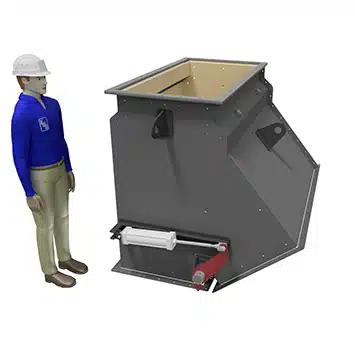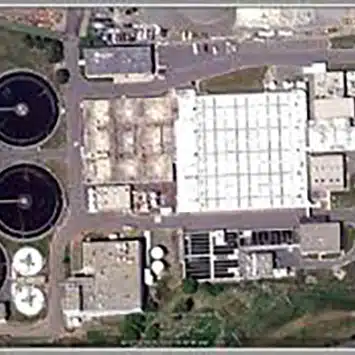Dewatered Biosolids Load Out System for WSSC Piscataway Bioenergy Project
WSSC Piscataway Bioenergy WWTP
Accokeek, MD
General Description
WSSC Water, formerly Washington Suburban Sanitary Commission is transforming the way the Piscataway Water Resource Recovery Facility will handle waste from five existing water resource recovery facilities. The Piscataway Bioenergy Project is the largest and most technically advanced project ever constructed by WSSC Water. This $271 million project is expected to serve customers for the next 100 years by using innovative technology to recover resources and produce green energy. The Piscataway plant will evolve into a bioenergy production facility that uses efficiency, technology, and sustainability to enhance the region’s environmental and financial health.
WSSC Water’s investment in this bioenergy facility is both environmentally friendly and financially sound. The new process is forecast to reduce operating costs, by significantly reducing the amount of biosolids left over from the treatment process, thus reducing costs for hauling and disposal. In addition, the biosolids will be significantly cleaner “Class A” biosolids, making the disposal process much easier and allowing the final product to be sold and distributed as fertilizer. With cleaner Class A biosolids, WSSC Water will also save money by eliminating the use of lime, which is applied to Class B biosolids to control odor. The Piscataway Water Resource Recovery Facility will become WSSC Water’s showcase for maximizing value by investing in a green future.
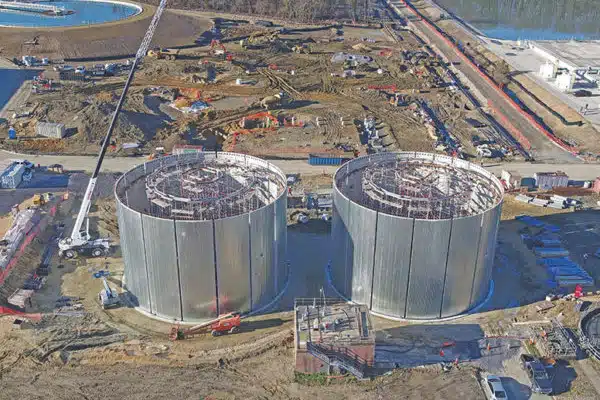
Piscataway Bioenergy Project Recovers Resources and Produces Green Energy
Design Parameters
- Product Type: Dewatered Biosolids
- Material Density: 40 to 60 Lbs. per Cubic Foot
- Capacity: 500 Cubic Feet per Hour
- Duty: Intermittent
KWS Advantages
KWS worked closely with the contractors to ensure the interface between conveyors, mating process equipment, and support structures were designed properly. KWS utilized the latest 3D CAD modeling techniques to model the complete system to help the engineer determine all support locations during submittal process. As a result, the installation phase went very smoothly. A certified KWS engineer performed equipment startup and operator training before the system was put into successful service.
KWS Special Features
KWS Shafted Screw Conveyors were used for the biosolids conveying. Screws were constructed from abrasion-resistant material to increase wear life. All screw conveyor troughs, covers, and trough ends were 304 stainless steel for corrosion resistance. Direct drive shaft-mounted reducers provide a compact design and deliver maximum torque for upset conditions.
KWS provided various chutes both rigid and flexible, to keep biosolids contained in the multi-conveyor system and for truck load out. Electrically actuated slide gates direct the material flow between the conveyors and discharge biosolids evenly throughout the bed of the truck. To protect the equipment and operators, all screw conveyors are fitted with an emergency pull cord safety stop system, motion speed sensor, and fixed covers secured with safety bolts requiring a special tool to remove. Safety bolts restrict equipment access to only trained maintenance personnel. The pull cord safety stop system provides quick shutoff of a conveyor in an emergency by pulling the cable that is located on all sides. Speed sensors warn operators of equipment malfunction through detection of speed change or zero speed, sending a signal to shut down machinery to prevent failure.
Testimonial
"The KWS equipment looks great, and installation went smoothly. We appreciate your assistance on site during the startup phase."
Daniel Burns, Project Manager – Stantec/Hazen and Sawyer
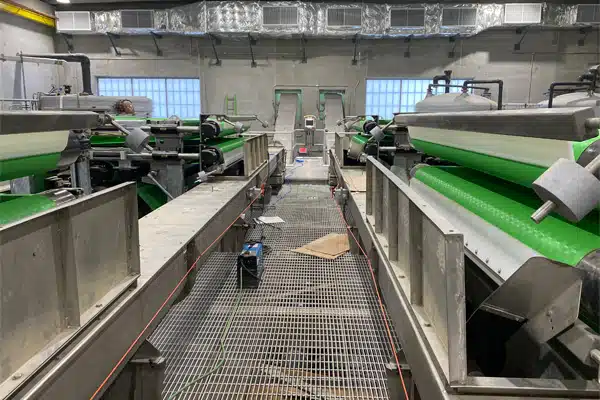
KWS Screw Conveyors Receive Dewatered Biosolids from Belt Filter Presses
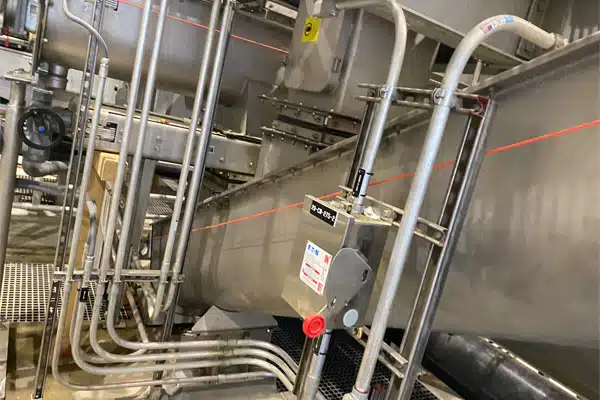
KWS Inclined Screw Conveyors Transfer and Elevate Biosolids to Truck Loadout Area
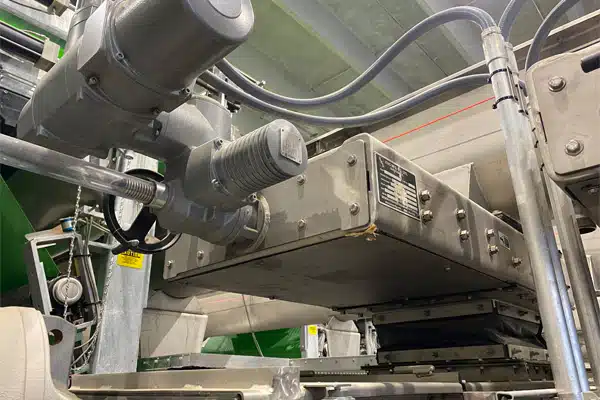
KWS Electrically Operated Slide Gates Divert Biosolids to Either Loadout Conveyor
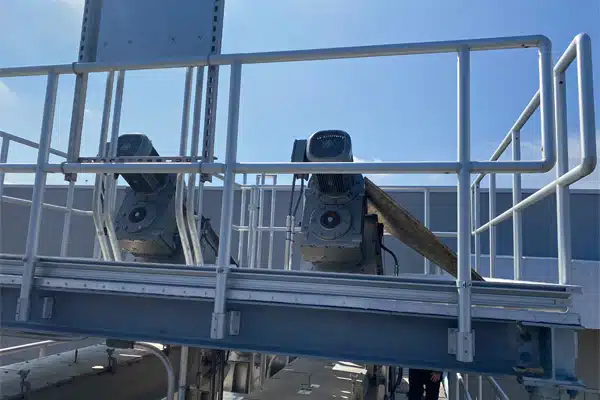
KWS Inclined Screw Conveyors Utilize High-Torque Drive Units to Power Through Upset Conditions
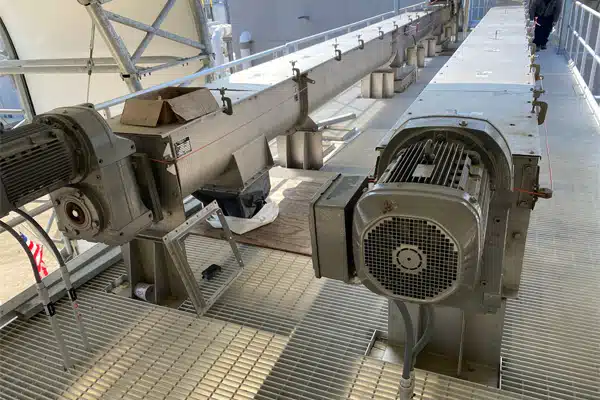
KWS Truck Loadout Screw Conveyors Efficiently Fill Trucks
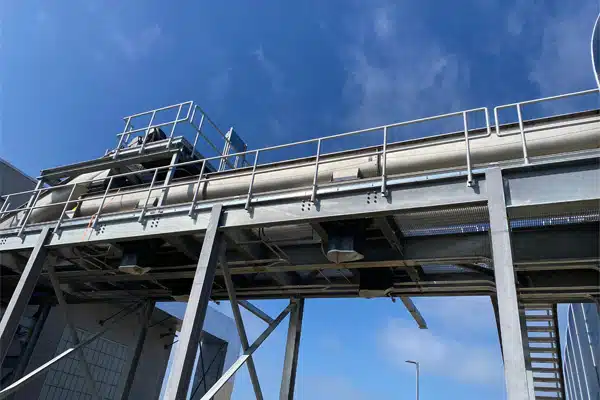
Flexible Chutes Ensure Biosolids are Cleanly Loaded into Trucks
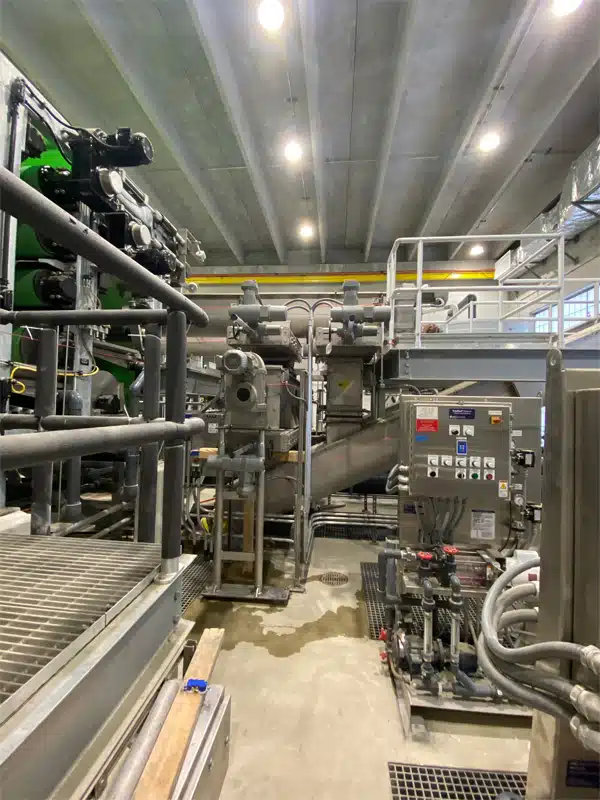
Biosolids Loadout System is Completely Redundant with Multiple Conveyors
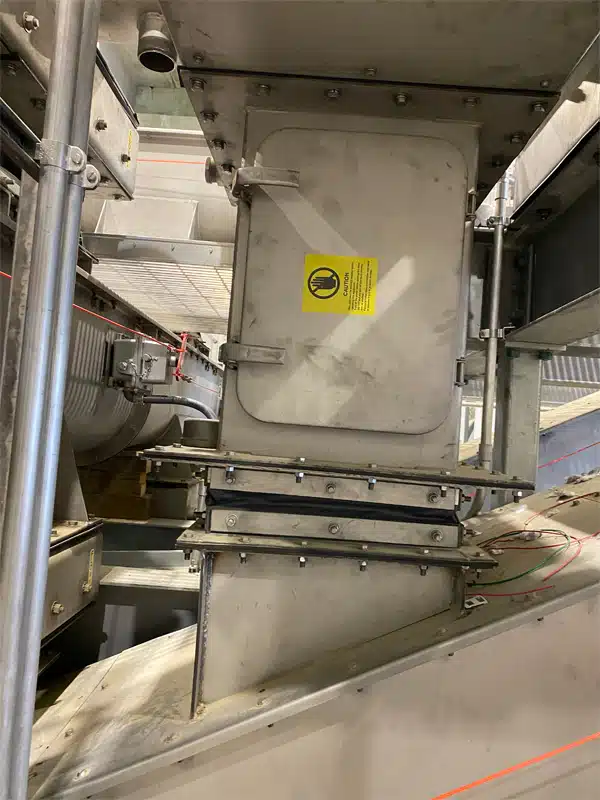
Both Rigid and Flexible Chutes are Used to Make Installation and Operation Easy

